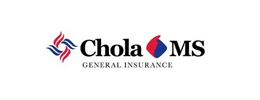Last updated on: September 19, 2025
The Reliance Health Gain Plan and Star Senior Citizen Red Carpet Plan are both popular health insurance options, but they cater to different age groups and needs. Reliance Health Gain is designed for individuals and families aged 18–65, offering comprehensive coverage, wellness benefits, and flexible sum insured options. In contrast, the Star Senior Citizen Red Carpet Plan is tailored specifically for seniors aged 60–75 years, providing coverage for pre-existing diseases with minimal waiting periods and no need for pre-insurance medical tests. While Reliance Health Gain emphasizes broad benefits and wellness features, the Star Senior Citizen Red Carpet Plan focuses on easier access and suitability for elderly applicants. Choosing between them depends primarily on the applicant’s age and specific health requirements: younger families may benefit more from Reliance’s plan, while seniors seeking hassle-free coverage should consider Star’s offering.
A health insurance plan is one of the most important financial choices, particularly when you or your loved ones age. As costs in India continue to increase, the right coverage is going to keep you out of pocket when it comes to medical emergencies. The Reliance Health Gain Plan and the Star Senior Citizen Red Carpet Plan are two of the most trendy plans in 2025. But how do they compare? Which one do you need to use, either yourself, or your aging parents? This article is richly detailed, easy to grasp, has the expert knowledge, and practical tips.
The Reliance Health Gain Plan (2025 Edition) is a flexible health insurance that an individual, a family, and the elderly can use to cover everything. It is provided by Reliance General Insurance and is unique in its customisability and innovative features in addition to wide hospital network in India.
Expert’s insight:
According to Manish Singh, an independent IRDAI-certified advisor, the Reliance Health Gain Plan is flexible and has modular features that will suit Indian families with heterogeneous health needs in 2025.
Star Health and Allied Insurance offer flagship health insurance plan called Star Senior citizen Red Carpet Plan which is designed to cover senior citizens aged 60 years and over. It is designed to address health related problems and risk of higher claims among older Indians.
Did you know?
IRDAI reports show that more than 48 percent of all health insurance claims made by Indians over the age of 60 are critical illnesses[1].
To get a rough idea of the key differences and similarities between these two health insurance plans, the following is a detailed comparison table:
| Characteristics | Reliance Health Gain Plan | Star Senior Citizen Red Carpet Plan |
|---|---|---|
| Entry Age | 3 months to 65 years | 60 to 75 years Perpetual Life Lifelong |
| Sum Insured Options | [?]3 lakh - [?]3 crore | [?]1 lakh - [?]25 lakh |
| No-Claim Bonus | Maximum 200 percent | 10 percent per year of claim-free service |
| Pre-existing Disease Coverage | After 2-4 years (plan-dependent) | After 1 year (select conditions) |
| Medical Check-up Required | Above 45 years or sum above limits | Not mandatory |
| Cashless Hospitals (Approx.) | 7600 plus | 13,000 plus |
| Claim Settlement ratio (2024) | 97.5 percent | 94.0 percent |
| Wellness Benefits | Yes (reward points, health check) | Limited (annual check-up) |
| Wait before Illnesses | 30 days; 2-4 years before PEDs | 30 days; 12 months before PEDs |
| International Cover | Additional feature (optional) | No |
| Critical Illness cover | Optional add-on | Not available |
Data represents recent IRDAI published claim ratios at end 2024.
We can consider the case of Mr Sharma who is 64 years old and retired in Jaipur. He compared the two plans with the help of an online insurance marketplace. But the plan suggested by Star was more suitable to him because it had a less rigid entry requirement and had a more lenient pre-existing condition tolerance.
Reliance Health Gain is the most adaptable retail health products in India. In addition to regular inclusions, it also has:
People also think:
Q: Does Reliance Health Gain Plan cover the maternity expenses?
Star: There are no standard add-ons, which are usually provided, the only problem is core inclusiveness.
This plan will target the retired elderly and citizens with a medical history, as entry is simpler, fewer health tests are needed, and operations are senior-friendly. Unique pros include:
Did you know?
According to a study conducted by Niti Aayog, more than 93 percent of Indian retirees are above 65 years with at least one pre-existing disease.
Another question people ask:
Q: Does Star Senior Citizen Red Carpet Plan include home nursing?
A: Yes, under limited circumstances by domiciliary cover.
Pros
Cons
Pros
Cons
Expert note:
Insurance brokers suggest Star Red Carpet as a bridging plan till other alternatives will be available or health will improve.
Answers include:
Q: Is it possible to purchase both these health policies on the Internet?
A: Yes, through reliable online marketplaces that provide unbiased insurer comparisons, it is easy to compare, select and buy both plans.
Most health insurers have pre-existing disease (PED) cover that is subject to a waiting period. Star Red Carpet Plan tends to serve older consumers who have a pre-existing illness better. Here are key points:
Another question people ask:
Q: Which insurance policy results into claims faster?
A: According to the data of 2024, Reliance was able to process 97.5 percent of claims in 7 days, and Star was able to process 94 percent of claims in 7 days.
Yes, one of the selling features of Reliance Health Gain Plan is customisation. You have a choice of critical illness cover, global hospitalisation, or outpatient treatments. Star has a less personalised strategy, but it fits simple protection of senior requirements.
Reliance: various maternity, OPD, personal accident add-ons.
Such families and individuals are best suited to Reliance Health since they want high sum insured, superb modular supplements, or wellness supplements.
Did you know?
Over 71 per cent of claims made by senior citizen plans include treatment that is not covered by standard group covers.
We can take the example of the Kumar family of Pune. Mr Kumar is 68 years old and his wife is 62 years old and they wanted to be insured because Mr Kumar had a minor stroke. In a comparison they made online, they found:
The insurance portals would allow them to compare premiums, benefits, and claim ratios simultaneously. They compromised and chose both: Star to cover the short term and Reliance to cover the long-term.
The table below shows a sample of a premium rate on a sum insured of [?]10 lakh in 2025:
| Age | Reliance Health Gain (annual) | Star Senior Citizen Red Carpet (annual) |
|---|---|---|
| 62 | [?]22,500 | [?]18,700 |
| 70 | [?]34,900 | [?]28,400 |
Note: The above premiums are approximated as per person. The real cost is based on medical history, plan option and city.
There is also a question:
Q: Does the lifetime renewability apply to both plans?
A: Yes, the two policies have lifetime renewal.
| Parametric | Reliance Health Gain Plan | Star Senior Citizen Red Carpet Plan |
|---|---|---|
| Intended For | All ages (60 and above) | Seniors (60+) |
| PED Waiting Period | 2-4 years | 1 year (in some cases) |
| Entry Process | No pre-entry tests, may require medicals over 45/SI limits | Not mandatory |
| Cashless Network | 7600 plus | 13000 plus |
| Cover Range | Until [?]3 crore | Until [?]25 lakh |
| Co-payment | Optional (some) | Mandatory (10-30 percent by age) |
Star senior citizen Red Carpet will be suitable in older individuals above 60 years that medically demand and individuals who desire very minimal entry requirements.
Star Senior Citizen Red Carpet shall suit the old aged people aged over 60 years old which medically require it and also the ones that require very low entry criteria.
The two plans have lifelong renewability and digital claims, as well as cashless hospitalisation.
Compare the insurance options available in the market by using online insurance marketplaces to find out the premiums, features and support and then purchase the best.
Q: Can I include the two parents on one Reliance Health Gain Plan?
A: Yes, under this plan you can take a family floater cover.
Q: Does the critical illnesses have a wait in either plan?
A: Reliance provides critical illness cover as an addition and typically at a particular waiting period (depending on option). There is no special critical illness add-on to this policy offered by Star.
Q: Are these health insurance premiums tax deductible to me?
A: Both plans qualify under section 80D income tax benefits with respect to premiums paid.
Q: What do I do to make a claim under these policies?
A: In both insurers, the claim intimation can be made digitally or through their helpline. Cashless orders are done through your hospital and insurer support team.
Q: What will happen when my policy is out of date?
A: The grace period of both of the plans is 30 days of premium payments, after which the coverage will be invalid.












How could we improve this article?
Written by Prem Anand, a content writer with over 10+ years of experience in the Banking, Financial Services, and Insurance sectors.
Prem Anand is a seasoned content writer with over 10+ years of experience in the Banking, Financial Services, and Insurance sectors. He has a strong command of industry-specific language and compliance regulations. He specializes in writing insightful blog posts, detailed articles, and content that educates and engages the Indian audience.
The content is prepared by thoroughly researching multiple trustworthy sources such as official websites, financial portals, customer reviews, policy documents and IRDAI guidelines. The goal is to bring accurate and reader-friendly insights.
This content is created to help readers make informed decisions. It aims to simplify complex insurance and finance topics so that you can understand your options clearly and take the right steps with confidence. Every article is written keeping transparency, clarity, and trust in mind.
Based on Google's Helpful Content System, this article emphasizes user value, transparency, and accuracy. It incorporates principles of E-E-A-T (Experience, Expertise, Authoritativeness, Trustworthiness).